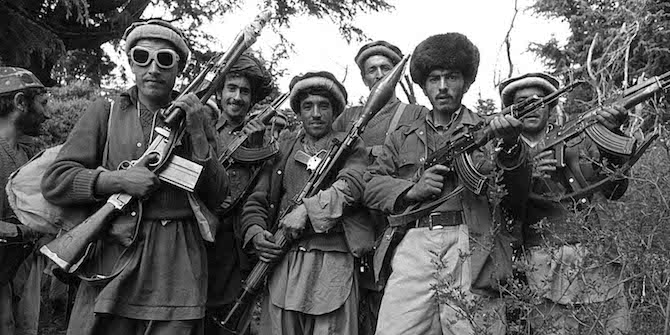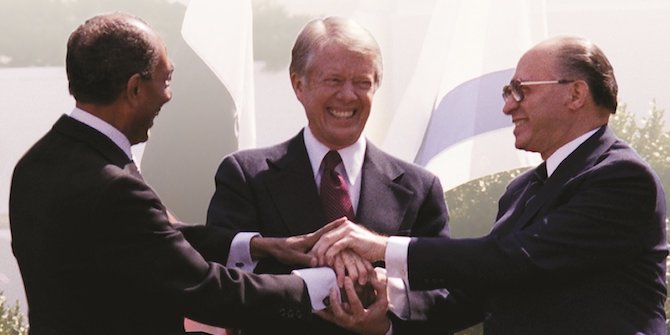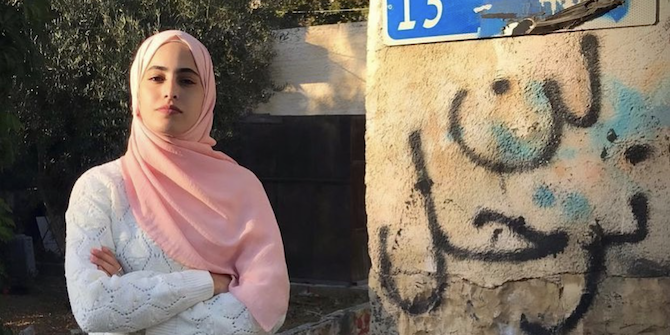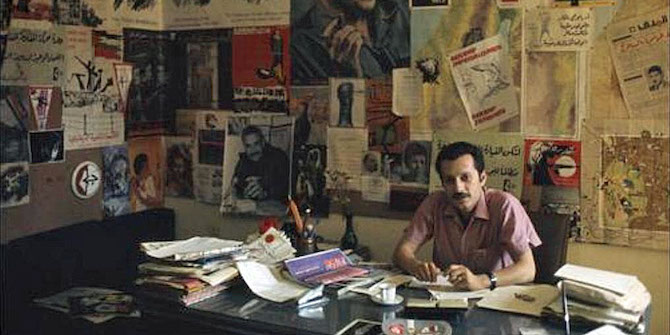A Palestinian Spring seems to be on the way, closer and sooner than expected. But it’s not the spring that the Palestinian Authority leadership has been talking about: it is a spring that is now emerging among Palestinian civil society and community groups, particularly those involving young people. It’s a quiet, but powerful citizen-centric approach. Indeed, within this fever of rights and dignity revolutions in the region, Palestinians citizens have thus far been quite silent and unable to revolt for various reasons. One major reason for their silence was their desire to allow the Palestinian Authority leadership to carry on in its venture and seek full membership at the United Nations. This venture, unsurprisingly, is facing various difficulties and will not change the lives of the Palestinians in the near future. Thus, major questions remain: Will the Palestinians revolt and when? What approaches and tools will they use this time, and against whom will they revolt? Isn’t it the time for a new Palestinian momentum in the region and a new victory for human dignity and freedoms?
Acknowledging the complexity of the Palestinian situation, a new revolt is needed against the occupation and its apartheid; and indeed another revolt is needed to unite the Palestinian society and its leadership, and create a legitimate, representative leadership for the whole Palestinians in the West Bank, Gaza Strip, in the 1948 territories (inside Israel), and in the diaspora. In this cold autumn, in addition to the ‘hidden’ or ‘suppressed’ activism and the other micro youth initiatives, two new initiatives are taking place to bring the Palestinian Spring closer. These initiatives are the Palestinian Freedom Rides (also found here) and the Civic Registration for Direct Elections of the PNC. These two initiatives, launched almost in parallel earlier this month, seem to provide micro examples of ways to address the complex situation in Palestine. While the Palestinian Freedom Rides aims to revolt against the settler colonial occupation and its apartheid systems, the civic registration initiative aims to revive and reform the Palestinian Liberation Organization (PLO) and its Palestinian National Council (PNC) as the sole representative body of the whole Palestinian people in al-Watan (those living within Palestine) and al-Shatat (the diaspora community), to achieve national unity and legitimate representation.
The civic registration initiative aims to induce democratic changes and reforms in the PLO institutions through guaranteeing the democratic participation of the 60 per cent of the Palestinians in the diaspora/Shatat in electing their representatives in the PNC. This initiative in its preparatory phase until May 2012 aims to raise public awareness and any necessary logistical arrangements. Then, between May and October 2012 in the voters registration phase, the secure internet registration of unregistered voters will be launched and completed. This decentralized, yet coordinated campaign believes that, according to a press release from the campaign earlier this month, a ‘directly elected democratic PNC is the most effective means to affirm and advance Palestinian rights, end internal division, restore and strengthen our national liberation movement, and reactivate the PLO on a democratic basis so that it can represent the will of the entire Palestinian people’.
The importance of this civic registration campaign is that for the first time, it will become possible for every Palestinian, including the refugees in the Shatat, to register for elections of the PNC. In other words, this time the ‘missing’ refugees are finally remembered systematically. Additionally, this initiative, according to the same press release, ‘is neither a campaign nor a project of an NGO funded by international donors, but instead a civic endeavour carried out by civil society to support its national institutions, funded and run entirely by Palestinian civil society. It is not an initiative of a political group or committee that has given itself the mandate to ‘rescue’ or rebuild the PLO; it belongs to all Palestinians’. Furthermore, the governance and coordination mechanisms of this initiative are run entirely by committed volunteers. The Campaign for Voter Registration — which is made up of Palestinians, mainly refugees and youth, who are organizing for the rights of disenfranchised Palestinians to ensure their democratic participation in the national institutions — has emerged out of previous campaigns by rights-based networks and associations over the last decade, especially in the Shatat. The home-grown and incremental nature of this movement is unique: it reflects true and real Palestinian priorities rather those of donors and others with external power agendas. Finally, the campaign is also unique in that the Facilitation Office (FO) of the civic registration drive provides technical assistance and support, but does not own, run or coordinate the campaigns. By limiting its role, this campaign has learned a great deal from previous efforts and mistakes from other initiatives. Further, the FO is comprised of civic association members, and operated by a small Palestinian team from both the Shatat and occupied Palestine, a combination which reflects the importance of diaspora Palestinians in Palestinian society and in this cause in particular.
On the other hand, the Palestinian Freedom Rides initiative officially launched on the ground on the 23rd anniversary of the Palestinian Declaration of Independence, proved once again the justice of the Palestinian Cause, the wide international support to the Palestinian struggle, and the fragility of the Israeli occupation when its apartheid face is stripped. On the 15th of November, and inspired by the U.S. Civil Rights Movement’s Freedom Rides of the 1960s, Palestinian activists, mainly youth, challenged Israel’s occupation and apartheid policies by boarding Jewish-only buses from colonized West Bank territory to occupied Jerusalem. Brave Palestinian youth, with the support of their international friends, managed to board on an Egged settler’s bus near the illegal Jewish colony of Psagot, until the Israeli army surrounded and shut down the Jewish bus Number 148 and blocked the freedom riders at the boarders of Jerusalem before arresting them. It was astonishing that the freedom riders boarded on the bus wearing their Palestinian Kofeya/scarf and t-shirts written on it ‘Boycott the apartheid, Boycott Israel’. It was clear that these few brave youth, confused and caused discomfort to the Israeli establishment and army.
While the ride was relatively short, it showed the effectiveness of such initiatives in showing the world the real face of the occupation. The ride was live-streamed, videoed and lively broadcasted which acquired more than 103,000 signatures to support the freedom riders within few hours from 175 countries. This amazing international citizen’s support should be operationalized and reflected through lobbying and pressure on the governmental level of their countries. The initiative proved once again the extent that the Boycott, Disinvestment and Sanction campaign can be influential and an important tactic and tool to resist peacefully against the occupation to acquire the Palestinian rights and achieve the national aspiration and goals, backed by the international law and its conventions with the support of the international supports and worldwide fighters for freedom and justice.
The Palestinian Spring is approaching indeed and these two recent initiatives highlighted here are part of an ongoing incremental behind-the-scene processes and activism that is taking place to change the realties on the ground, end the Israeli occupation and its apartheid and preserve the human dignity and freedom for Palestinians.
 Alaa Tartir is a Ph.D. candidate and researcher in International Development at the Department of International Development, LSE and is researching governance, state-building and aid dependency in Palestine. His forthcoming publication is entitled ‘The Role of International Aid in Development: The Case of Palestine 1994-2008’ (Lambert, 2011).
Alaa Tartir is a Ph.D. candidate and researcher in International Development at the Department of International Development, LSE and is researching governance, state-building and aid dependency in Palestine. His forthcoming publication is entitled ‘The Role of International Aid in Development: The Case of Palestine 1994-2008’ (Lambert, 2011).








Great article Alaa. Hope this spring will help us re-acquire our rights from the israeli opression and occupation and to regain our representation from our drained Palestinian Leadership